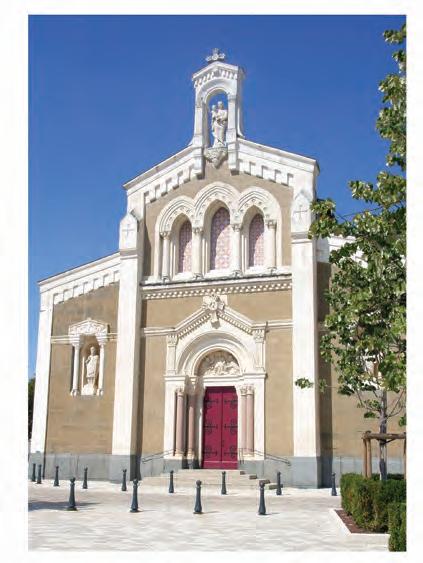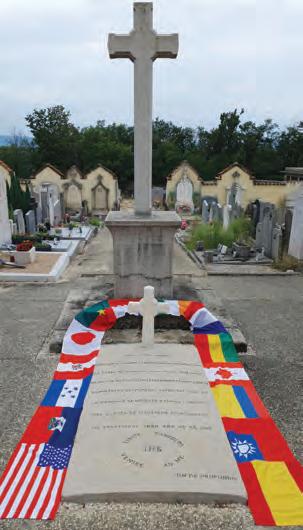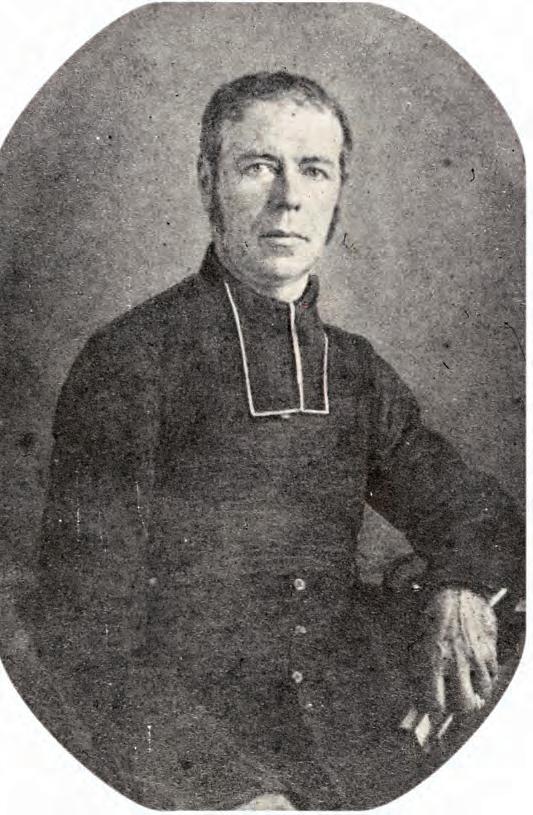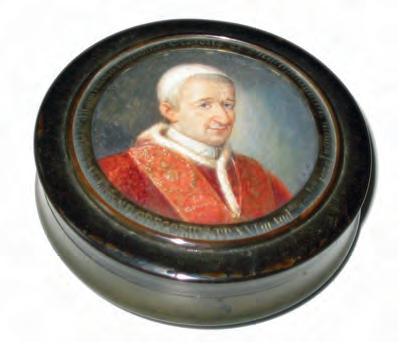
5 minute read
Adored and Loved be Jesus
The Directory of the Cleric of Saint Viator
6,5 x 10 cm (1836) them. On the day of the return of the lost son, there usually was a little party at the local community.” Fr. Etienne Gonnet wrote that Fr. Querbes placed his intellectual abilities, his acquired knowledge and his interpersonal skills at the service of all. According to a witness, he was always ready to help. As early as his days in Lyon, when he was a parish assistant, but especially in Vourles, many people came to him when they needed advice to help others about multiple cases, either administrative affairs or all sorts of other affairs: to get a job, to get a child into a school, to help arbitrate disputes, and to advise in legal affairs, etc. “What a magistrate he would have been!” said a judge. As a priest, Louis Querbes took up the cause of priests in difficulty, whether by welcoming them at his home, intervening with their bishops or with a Superior General, or in Rome to secure their regularization. In order to prevent an Italian religious from leaving his order to become a Protestant, he did not hesitate to go to Geneva in the middle of winter to meet him and then to welcome him to Vourles, and he did everything he could to have him welcomed again by his superior general.
Advertisement
Adored and Loved be Jesus
Louis Querbes did not write a spiritual book. Since he worked first with lay people, then with lay people who became members of a religious order, and since he was first an active parish priest, he stressed the value of the spiritual life that comes from Baptism. It is the spirituality that every Christian should live out, and which is based on virtues that he regarded as “ordinary”. He wrote to Father Faure: “Let us work for our salvation and our perfection by trying to acquire these virtues that I see as common to everyone, and the rest will be given to us”. Though he considered these virtues as ordinary, they are not ordinary at all, since they are: “faith, zeal (charity), humility, purity, love of work, love of retreat and silence.” For those who professed vows there was also obedience, chastity, and the spirit of poverty. There are three important innovations for catechists:
1. Louis Querbes created a special prayer book (the Legende) for his religious which fitted their primary responsibility. They will have to proclaim the Gospel, “so they will read the Bible every day, morning and evening.” They will have to teach the Christian doctrine, so, morning and evening, they will meditate on passages taken from The Catechism of the Council of Trent. They are messengers of Christ, so daily they will read short passages from The Imitation of Christ. The prayer book was the Legende (from Latin legenda = what needs to be read). While the 19th Century often favored simple and various devotions, Fr. Querbes wanted something solid. 2. The importance of the Eucharist. He emphasized the devotion to the Blessed Sacrament, which is the way to meet Christ.
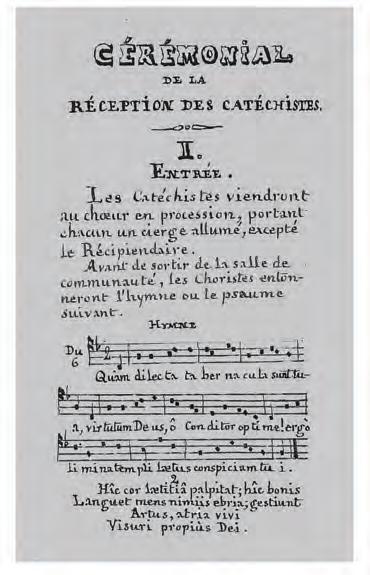
Ceremonial for the Reception of the Catechists
(ACSV) He recommended something that was not commonplace at the time – “frequent communion”, a practice that would be recommended by Pope Pius X at the beginning of the 20th Century. In the Directory (1830) he recommended to the catechists “to be worthy to receive communion, at least every week with the approval of their confessors.” (#46) He recommended frequent visits to the Blessed Sacrament of at least fifteen minutes daily plus other short visits throughout the day. He describes in detail the attitude of reverence one should have in church and when acting as a sacristan. He was critical of the “sacrilege of casualness with holy things.” According to the commentary on the statutes, all the catechists are at the service of the altar and all of them ought to be able to sing during the Office. 3. The feeling of belonging to the Church. The project of the congregation of the Clerics of Saint Viator was ecclesial. Whatever the church authorities decided for Father Querbes, he always accepted their final decision. Besides, he was an ultramontanist (‘beyond the mountains,’ meaning Rome), so he was in favor of the papal infallibility, and that is why he warned the catechists against any loosening of their links with the Church and the Pope. The motto Adored and loved be Jesus perfectly sums up his spirituality: contemplation and action for the neighbor or as Fr. Pierre Laur, csv, said: “Querbes, a man of adoration; Querbes, a man of active love”. That is exactly what he expected from his catechists – to be Christians who fully lived out their baptism. The terse motto was probably imagined by the founder, and it seems that it is an expression of the maturation and of the unifying goal that his spiritual experience had reached. By following the Christology of his time, Father Querbes centered his life and defined the mission that he was giving to the catechists: adoration and action, prayer and mission, liturgy and teaching catechism. The invitation to zeal (proclaiming the Gospel) is the result of “feeling the Presence of God.” We are in the best biblical tradition: “You will love the Lord your God and Him alone will you serve”. (Mt 4: 10) Pierre Laur writes: “From 1830, we often find the motto in his writing. This indicates to us that the relationship between adoration and love emerged in him very early and accompanied the birth of the society. This Christ-centered orientation became gradually more important than the emphasis on the missionary aim from the Gospel, Let the little children come to me. Contemplation became more important than action. Father Querbes dedicated all his life to reaching only one aim: that Jesus be adored and loved.” “Contemplation happens in meeting God in the children and in the poor, in the events of the real world. It gets deeper by listening to the Word of God. Everything is anchored in faith. Everything is driven by love which leads us to the service of God and our brothers in the mission of the catechists”. (Pierre Laur)



